
The Archive for Christian Democratic Policy (ACDP) at the Konrad Adenauer Foundation, established in 1976 on the initiative of Heinrich Krone, Bruno Heck and Helmut Kohl, is the central archive of the Christian Democratic Union (CDU) of Germany in Sankt Augustin.
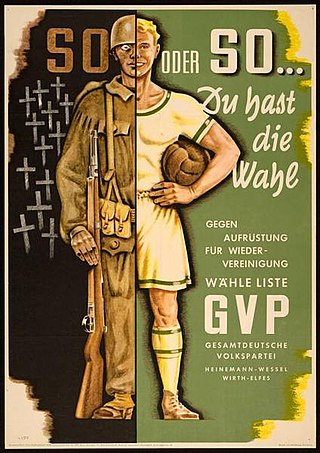
The All-German People's Party was a minor political party in West Germany active between 1952 and 1957. It was a Christian, pacifist, centre-left party that opposed the re-armament of West Germany because it believed that the remilitarisation and NATO integration would make German reunification impossible, deepen the division of Europe and pose a danger to peace.
Klaus Gustav Heinrich von Beyme was a German political scientist who was professor of political science emeritus at the Faculty of Economic and Social Sciences of the University of Heidelberg.

Claudia Crawford is a German politician of the Christian Democratic Union (CDU), who became the youngest cabinet minister in German history whilst in office from 1994–98 and was Federal Minister for family, seniors, women and youth affairs and, by virtue of this office, presided over the European Union Council of Ministers. Nolte is a Catholic and is active in the Catholic community. She is married to investigative journalist David Crawford of CORRECT!V. With her marriage in July 2008, she took the name of her husband.
Eckhard Jesse is a German political scientist. Born in Wurzen, Saxony, he held the chair for "political systems and political institutions" at the Technical University of Chemnitz from 1993 to 2014. Jesse is one of the best known German political scholars in the field of extremism and terrorism studies. He has also specialized in the study of German political parties and the German political system.

Gerhard Besier is a German Lutheran theologian, historian and politician best known for his work on church-state relations in the Third Reich and in the German Democratic Republic.
The Konrad Adenauer Prize was an award by the Germany Foundation, a national conservative organisation associated with the Christian Democratic Union, from 1967 to 2001 It was given annually between 1973 and 1975, then every two years, with exceptions, from 1975 to 2001. It was given to right-wing intellectuals and was named in memory of statesman and former German Chancellor Konrad Adenauer. The journalism and literary prizes are now both separate prizes altogether.
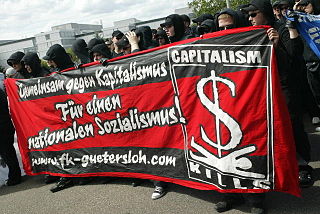
Autonome Nationalisten are German, British, Dutch, and to a lesser degree Flemish, nationalists, who have adopted some of the far-left and antifa's organizational concepts, demonstration tactics, symbolism, and elements of clothing, including Che Guevara T-shirts and keffiyehs. Similar groups have also appeared in some central and eastern European countries, beginning with Poland, the Czech Republic, Ukraine, Romania and Greece and others.
Anton Maegerle is the Pseudonym of the German journalist Gernot Modery. He is also the author of books about far-right politics, right-wing radicalism, the New Right, and right-wing policy in general.

The Hannah Arendt Institute for Totalitarianism Studies is a research institute hosted by Dresden University of Technology and devoted to the comparative analysis of dictatorships. The institute focusses particularly on the structures of Nazism and Communism as well as on the presuppositions and consequences of the two ideological dictatorships. The institute is named after the German-American philosopher and political scientist Hannah Arendt, whose magnum opus The Origins of Totalitarianism (1951) is considered across disciplines as one of the most influential works of the 20th century and continues to shape in particular scholarly discussions of totalitarian systems of political domination.

The German Party was a national-conservative and monarchist political party in West Germany active during the post-war years. The party's ideology appealed to sentiments of German nationalism and nostalgia for the German Empire.
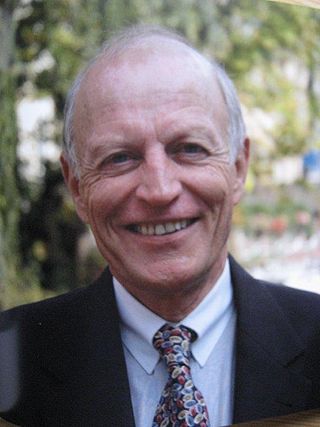
Dieter Mahncke is a scholar of foreign policy and security studies, and Alfried Krupp von Bohlen und Halbach Professor Emeritus of European Foreign Policy and Security Studies at the College of Europe. He is the author of books and articles on European security, arms control, German foreign policy, Berlin, US-European relations and South Africa.
The League of West German Communists was a Maoist communist political organization in the Federal Republic of Germany, active between 1980 and 1995 and one of the last surviving "K Groups" established in the aftermath of the German student movement. Following the German reunification, it merged into the Party of Democratic Socialism.
Richard Stöss is a German political scientist and extraordinary professor at the Free University of Berlin. The focus of his research is on right-wing extremism and on political parties.

Götz Kubitschek is a German publisher, journalist and far-right political activist. He espouses ethnocentric positions and is one of the most important protagonists of the Neue Rechte in Germany. Hailing from the staff of right-wing newspaper Junge Freiheit, Kubitschek is one of the founders of the Neue Rechte think tank Institut für Staatspolitik. Since 2002, he is the manager of his self-founded publishing house Antaios, since 2003 chief editor of the journal Sezession, as well as editor of the corresponding blog Sezession im Netz.
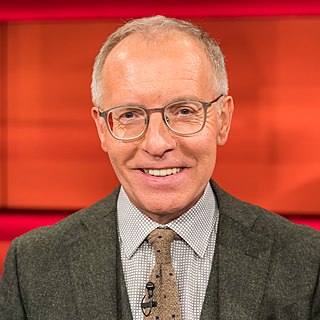
Karl-Rudolf Korte is a German political scientist and since 2002 professor at the University of Duisburg-Essen on Campus Duisburg. He appears regularly in national media as a guest for election analyses.
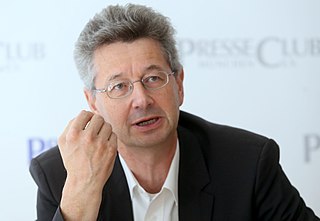
Michael Piazolo is a German Free Voter politician, lawyer and political scientist. In 2018 he was appointed as the Bavarian State Minister for Culture and Education in Minister President Söder's second Cabinet.
Tim Peters is a German political scientist, lawyer and politician of the Christian Democratic Union of Germany (CDU). A resident of Belgium, he is an official of the Secretariat of the European Parliament. As a political scientist, he is known as a student of Eckhard Jesse in the tradition of German extremism research, and has published works on the political tradition of the former Party of Democratic Socialism. He was one of the leading figures within the Junge Union during the early 2000s and is currently chairman of the Brussels branch of the CDU, the party's only branch outside Germany. He ran unsuccessfully as a CDU candidate for the Bundestag in the 2005 German federal election.

Harry Weibel is a German historian. His main topics are neo-Nazism, right-wing extremism and antisemitism in the GDR and racism in Germany from 1945 to the present.

Peter Radunski is a German politician (CDU) and political consultant. He served as the Senator for Federal and European Affairs from 1991 to 1995 and as the Senator for Science, Research, and Culture of the state of Berlin from 1996 to 1999. Additionally, he was a member of the Berlin House of Representatives from 1999 to 2001.













